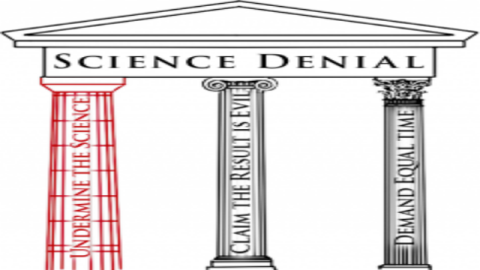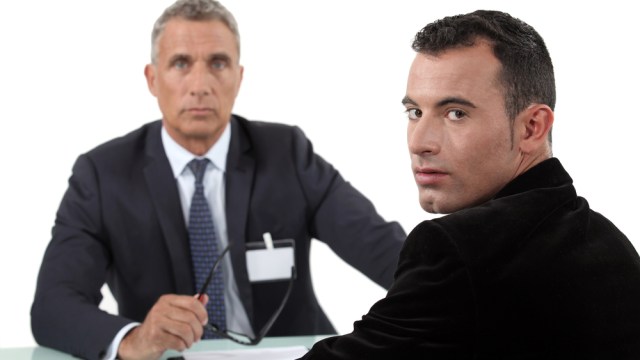Science Advice?! We Don’t Need No Stinkin’ Science Advice!!

More and more often, societies around the world are facing a conflict that puts us all at risk. People reject scientific evidence when it does not fit their worldviews and values, challenging governments to make evidence-based policies that do the most good for the most people over the long term, but also respond to short term pressure from small but loud and politically effective advocacy groups. This conflict is coming to a head right now in Europe, and how the European government handles this particular issue will send a loud message to the rest of the world about how to cope with the rising conflict between the facts and our feelings.
In 2011, in response to a growing number of controversial risk issues that required scientific expertise beyond the abilities of most government officials, European Commission President José Manuel Barroso and the European Commission took a daring chance. They created an official Science Adviser, to provide
“ independent expert advice on any aspect of science, technology and innovation”, and “authoritative guidance on interpretation of scientific evidence in the presence of uncertainty.”
That hardly sounds daring, seeking independent scientific expertise to help inform more intelligent risk management decision making. After all, many nations have long had a Chief Science Adviser, or something like it. But the move by the EC came after a long history of health scares in Europe, the mishandling of which had undermined public confidence in government. And it came in the face of current controversies over issues like genetically modified food and climate change and drilling for shale gas, issues fraught with more than scientific complexity. They are emotionally explosive political minefields, each of them merely one more battleground in a larger war that is more about deep values than a simple quarrel about the evidence.
Into that lion’s den the EC threw Dr. Anne Glover, a Professor of Microbiology at the University of Aberdeen and Scotland’s Chief Science Adviser. And to no great surprise, the lions have attacked. A coalition of environmental organizations, including Greenpeace, have asked EC President-elect Jean-Claude Junckerto trash the whole notion of independent expert science advice to inform government decision making, eliminating the position when Dr. Glover’s term expires in February 2015. Particularly upset that Dr. Glover’s review of the research on genetically modified food found no credible evidence of human health harms (the same finding reached by every independent national science panel worldwide), the environmental coalition proposed instead that science advice should come “from a variety of independent, multi-disciplinary sources, with a focus on the public interest.” In other words, from interest groups and advocates who, by definition, see the facts through the lenses of their own values. That’s hardly independent analysis of the science. That’s a values-based view of what the evidence means, which advocates have plenty of opportunity to voice in the process of democratic decision making.
European scientists and science organizations defended the need for independent expert science advice to inform smarter government decision making about risk. One letter to Juncker, signed by 40 science and academic organizations and 773 individuals, including many prominent scientists, said, “Policy makers or lobbyists who seek to remove scientists because they don’t like their findings or advice do so at the peril of their citizens.” Another letter, from Cancer Research UK, the Wellcome Trust, and other respected non-profit public health research organizations, not only rejected the call to trash the position of science adviser. They want the role expanded, the staff and funding increased, and more insulation for the science adviser from external pressure, including from politicians themselves, a problem about which Dr. Glover herself has complained.
The immediate particulars of this fight in Europe may be unique, but the same conflict is going on around the world, and our health and safety depend to no small degree on its outcome. The facts are being taken hostage in an ever more intense war over deep values, particularly about environmental issues. And several aspects of modern society are making this war, and its warriors, more angry and closed-minded than ever.
First, the issues themselves are growing more complex. We rely on a psychological risk perception system that evolved, and worked fine, when all we had to worry about were lions and tigers and bears, oh MY! Now we have to sort through climate change and biotechnology and nanotechnology, issues that demand more careful conscious consideration, not less.
Second, we have lazy brains, brains that use all sorts of subconscious mental shortcuts (the academics call them heuristics and biases) to figure things out quickly, without a lot of careful thinking, because careful thinking takes energy. It literally costs calories to pay attention, and the brain evolved these energy-saving cognitive tools back when it wasn’t sure when or where the next meal might come. That’s not new. But the new information media world certainly is, and in order to satisfy our inherently short attention spans it supplies only the amount of information we want, which generally is not that much. So just as we need more information to figure out complex risk issues, we’re getting less.
And third, the internet has given every advocate a megaphone that can reach around the globe. This too plays to an innate foible of our lazy brains. It’s a lot easier to seek confirmation than information. So not only does the online world provide less information, it provides more spin and distortion of that information from an online empire of advocates that enables us as never before to find the voices we agree with, and to ignore anybody else.
The fight over whose view of the facts win is perennial. But these modern factors are like pouring gasoline on the fire, magnifying emotions and controversy and increasing the political pressure on policy makers to ignore the evidence and respond to our passions. And that puts us all at risk, because as the issues grow ever more complex, we increasingly need our leaders to make well-informed decisions that not only respect our values, but also do thoughtful justice to the facts.
So how President-elect Juncker and the EC handle this question matters to all of us. Their decision will send a strong signal to societies everywhere struggling with this same question. How much do we want our leaders to have an independent values-free view of the scientific evidence, in addition to public input, before they decide how best to protect human and environmental health?
P.S.
This post originally ran as a Guest Blog on Scientific American
Credit for the graphic; National Center for Science Education





